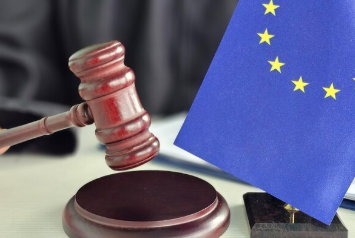Written by: Caleb Gilliam-Scott
The concept of a strawman or straw company in European Patent Office opposition proceedings is well understood, where the “true” opponent behind the action is anonymous and shielded by the straw company.
But this raises the question: can a straw company be used at the Unified Patent Court for the same purpose, specifically to shield a client from a potential infringement action?
Before the UPC agreement entered into force, many commentators noted that whilst the articles and rules do not explicitly provide against straw companies, the legal position would become clear as UPC case law developed.
A recent order against a preliminary objection may be the first piece in building (or burning down) the possibility of a straw company at the UPC.
The order notes that the “straw company” theory finds basis in EU law, and goes so far as to provide a definition of a straw company.
The circumstances of the case before the court were as follows:
- Emporia UK and Ireland Ltd. filed a revocation action with the Central Division in Paris action against Seoul Viosys Co., Ltd. with regard to European patent 3 926 698 directed to light emitting diodes;
- Seoul Viosys lodged a preliminary objection that the Central Division lacked competence because the patent was already subject to an infringement action with a claim for revocation before the Düsseldorf Local Division, where the counterclaim had been dismissed and was pending on appeal;
- Seoul Viosys claimed that Emporia UK and Ireland Ltd. was acting as a “straw company” for ex-pert klein GmbH (a distributor and party in the parallel proceedings), and thus both should be considered the same party for jurisdictional purposes;
- Emporia UK and Ireland Ltd. denied being a straw company, arguing there was no such legal basis and that the only link was a supplier-distributor relationship;
- The Court rejected the preliminary objection, finding insufficient evidence that Emporia UK and Ireland Ltd. was acting as a straw company for ex-pert klein GmbH, and held that coordination of litigation strategy alone does not equate to being the same party under Article 33(4) UPCA.
Important for our discussion is that the Court actually provided a definition of a “straw company”: a company that exists only formally, without any real or significant business activity, and which is typically used to conceal the true identity of another person or entity, or to carry out activities that the latter does not want to or cannot perform directly.
The Court further elaborated that this concept relates to situations where properties or contracts are fictitiously registered or concluded in the name of one person, with the understanding that the legal effects will apply to another entity.
It was also observed that the notion of a straw company is akin to contractual simulation, a concept recognized in many European civil law systems, where there is a tacit agreement between parties to create an appearance that differs from reality.
Finally, the Court emphasized that while EU law does not explicitly regulate straw companies, the principle of prohibition of abuse of rights applies—meaning that if a straw company is used to circumvent EU rules or frustrate their purpose, its actions can be attributed to the true controlling party
Applying these principles to the case, the Court concluded that there was not sufficient evidence to establish that Emporia UK and Ireland Ltd. was acting as a straw company for ex-pert klein GmbH.
While the applicant (Seoul Viosys) pointed to several indicators — such as shared legal representatives, overlapping invalidity arguments, coordinated litigation strategies, and the parent company’s awareness of the related proceedings — the Court found these factors only indicative of coordination, not proof of a straw company arrangement.
The Court reasoned that coordination between a supplier and distributor in defending against a patent infringement claim is commercially reasonable and does not, by itself, demonstrate that one entity was created or used as a nominee for the other.
Ultimately, the Court held that Emporia UK and Ireland Ltd. and ex-pert klein GmbH were autonomous entities pursuing their own interests, even if those interests converged in challenging the same patent. Therefore, the Preliminary objection based on the “straw company” argument was rejected.
It could be said that the main point at issue here revolving around a straw company was the competence of the Central Division for the purposes of the “same parties, same patent” exception of Article 33(5) UPCA, and not the general allowability of straw companies.
Indeed, this issue of competency was already tested at the UPC in Edwards Lifesciences v Meril Italy, where an Indian parent company was deemed not to be the same party as the Italian subsidiary, thereby allowing different revocation actions to be brought against the same patent in different divisions.
However, this author thinks the more interesting question is whether a straw company is allowed to bring a first revocation action.
Parties to UPC actions must be “concerned” by a patent, per article 47(6) UPCA. This broad wording would thus seem to allow for a straw company to bring a revocation action, for example on the basis of concern for the public interest in trusting that granted patents are valid.
The specific example of a straw company being the representative of the “true” party is an interesting one. Per Article 48 UPCA, parties shall be represented by lawyers of a contracting member state or may alternatively be represented by suitably qualified European Patent Attorneys.
Neither the articles nor rules preclude representation by an employee if the employee satisfies one of those two criteria, and thus it seems plausible that a firm of European Patent Attorneys could bring a revocation action in its own name on behalf of a client.
However, the Order notes that where an abuse of rights or a frustration of occurs, this would not be allowed.
Since a straw company could frustrate the right of the defendant in a revocation action to bring a counterclaim for infringement (assuming the straw company is not involved in the same commercial area, as in the case of a straw company being a law firm), then it is likely that such representation would not be allowed, or at least, the actions of the straw company could be found to be attributable to the party behind it.
It remains to be seen whether privilege would apply in such a case, since privilege is typically between the representative and the party, and thus a straw party of a firm of representatives which is representing itself likely has no privilege extending to the “true” client. If the defendant were to suspect such a straw arrangement, then they could move for the Court to order a production of documents evidencing the arrangement.
One solution could be that the firm of representatives engages a second firm. Such a high cost solution is likely to be viable only where anonymity is paramount.
The allowability of strawman revocation at the UPC therefore remains in doubt. Perhaps the first party to try will succeed, opening the way for other anonymous actions. Or perhaps they’ll draw the short straw and be forced to reveal their client. Only time, and more importantly case law, will tell.



